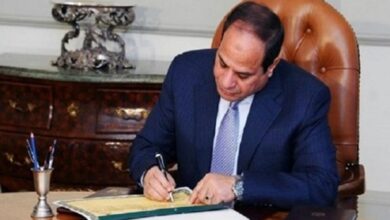On the front page of al-Wafd opposition paper stands a story about an exceptionally pressing issue: electoral violence. Today’s issue dedicates almost one-third of its front page to an article that highlights the recruitment process of thugs during elections. The article headlines “Thugs determine the political future of Egypt” and cites a recent study that discusses the nitty-gritty details of how to hire thugs.
The study prepared by an expert on criminal sciences says that the cost of hiring thugs has gone up expotentially ahead of the parliamentary poll slated for November. Prices range from 300 to 25,000 depending on the level of violence required. Some packages include beating the adversarial candidate to death while others feature sexual assault. The study also claims that thugs have developed new means to market themselves. According to the study, thugs now circulate videotapes that reveal their physical capabilities and methods of tainting the reputation of adversaries.
Besides the powerful headline, the paper posts a colorful picture that depicts two thugs holding knives while riot police watch from behind in utter indifference. Electoral violence is a growing phenomenon in Egypt. In the 2005 poll, electoral violence killed 13 people. Opposition voices constantly accuse the ruling National Democratic Party of hiring thugs to defeat opposition parliamentary hopefuls.
The privately-owned Al-Dostour daily engages a topic no less timely. In light of ongoing sectarian debates, the paper dedicates two full pages to an article by the Islamic thinker Mohamed Selim al-Awa, whose name has recently made headlines after his battle with the second ranking official in the Coptic Church.
Earlier the local press reported that al-Awa said churches were weapons caches. The accusation came in response to an incendiary statement by Bishop Bishoy, the secretary general of the Coptic holy synod, in which he said Muslims are guests in Egypt. A few days later, the local press reported that the bishop pressed further in his provocation of Muslims by claiming, in a clerical publication, that some Quaranic verses were made up by Muslim caliphs.
The claim has provoked many Muslim clerics and fueled several protests. It has also forced Pope Shenouda III to apologize to Muslims in a televised interview. In his recent article, al-Awa issued a detailed rebuttal to Bishoy’s claims, insisting that he is the one who should apologize and not the pope. “Bishop Bishoy should apologize himself for what he said, did and wrote. Pope Shenouda is the head of the church and should not bear the mistakes made by those who belong to the church,” wrote Al-Awa.
Away from local politics, the front page of state-owned Al-Ahram daily leads with the headline: “The collapse of direct negotiations because of settlements and calls to resort to the Security Council after discovering American weakness.” The Palestinian Authority decided yesterday to halt direct negotiations with Israel as the latter insists on resuming the construction of settlements on Palestinian territories in the West Bank. In the meantime, according to Al-Ahram, US Special Envoy for Middle East Peace George Mitchell announced that the US would keep supporting indirect talks between the Palestinian President Mahmoud Abbas and the Israeli Prime Minister Benjamin Netanyahau. President Barack Obama’s administration has been pushing hard to make the two parties resume direct talks and reach a settlement whereby a Palestinian state could finally be established. But it failed to exercise enough pressures on the Israeli side to halt settlement construction, according to Arab observers.
Egypt's papers:
Al-Ahram: Daily, state-run, largest distribution in Egypt
Al-Akhbar: Daily, state-run, second to Al-Ahram in institutional size
Al-Gomhorriya: Daily, state-run
Rose el-Youssef: Daily, state-run, close to the National Democratic Party's Policies Secretariat
Al-Dostour: Daily, privately owned
Al-Shorouq: Daily, privately owned
Al-Wafd: Daily, published by the liberal Wafd Party
Al-Arabi: Weekly, published by the Arab Nasserist party
Youm7: Weekly, privately owned
Sawt el-Umma: Weekly, privately owned




